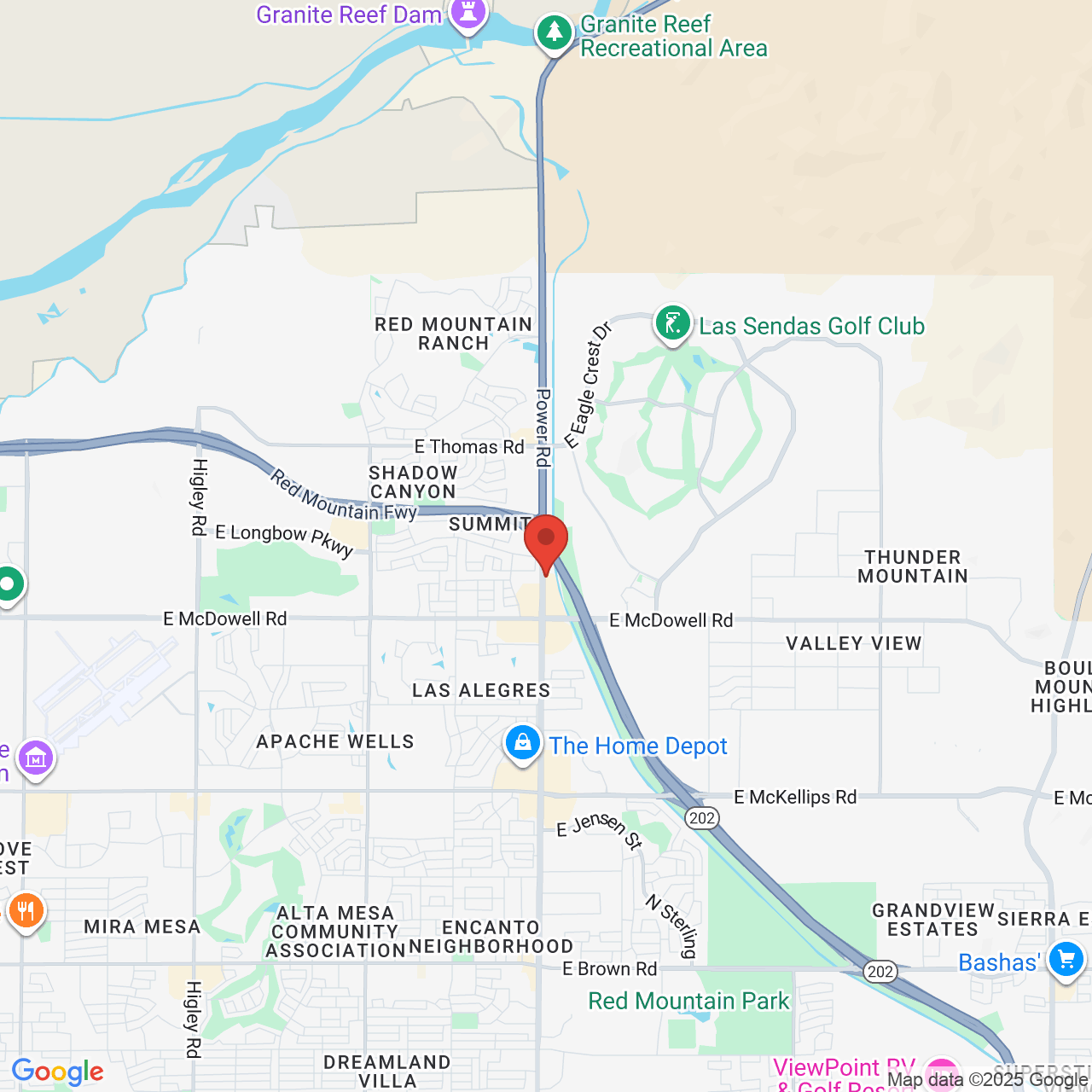Apicoectomy: Treating a Failed Root Canal
If a root canal is performed and the tooth becomes infected again, a second root canal may be considered. If a second root canal cannot be performed, your dentist may recommend a treatment known as an apicoectomy. During this surgery, the root tip is removed along with any infected tissue. A filling is then used to seal the tip of the root. Drs. Martin Farnsworth and Derek Farnsworth perform this restorative treatment for patients at their office in Mesa, AZ. A successful apicoectomy can prevent the need for tooth extraction. At Las Sendas Dental Health, we offer comprehensive dental services.

An apicoectomy addresses a dental infection through direct access to the root.
Benefits of Apicoectomy
An apicoectomy is often performed when retreatment of an infected tooth would require cutting a crown or bridge. Retreatment could risk destroying or weakening the prosthetic, meaning an apicoectomy often saves patients the time, money, and hassle of manufacturing a new prosthetic.
Because the procedure is restorative, many dental insurance policies cover part of all of the costs. Patients who undergo apicoectomy at our dental practice can benefit from:
- A very high success rate of more than 90 percent
- The removal of harmful infected tissue
- The prevention of further serious health problems
- Relief of tooth pain
- Restoration of oral health and chewing function
- Sedation options to keep you comfortable throughout the procedure
- The use of 3-D cone beam computed tomography to plan a precise and effective treatment
If you have undergone a root canal and still experience discomfort or other signs of infection, our dentists can determine if you are a candidate for an apicoectomy.
Am I a Candidate?
Candidates for apicoectomy are unable to undergo root canal therapy to address an infection. Patients who require apicoectomy surgery are often experiencing oral pain, sensitivity to hot and cold, gum swelling, and tooth discoloration. A recurring root canal infection can return weeks or even months after the initial root canal treatment. During your visit to either of our dental offices, one of our doctors will determine if you are a good candidate for an apicoectomy.
A Look at the Procedure
This straightforward oral surgery procedure is performed using local anesthesia. Our dental offices can provide nitrous oxide and oral conscious sedation options to help patients feel more comfortable throughout their treatment. The procedure begins when one of our doctors makes a small incision in your gum tissue to access your tooth root. Any infected tissue will be removed, and your doctor will clean and seal the root canal using special instruments. Your gum tissue will then be sutured back in place. This treatment typically takes 30 to 90 minutes to perform. Our doctors recommend eating a soft diet for the first few days following the procedure. Any side effects, such as swelling or discomfort, should subside within a week.
Schedule an Appointment Today
A successful apicoectomy can lead to immediate relief from pain and restoration of oral health. If you have undergone a root canal and still experience discomfort or other signs of infection, the doctors of Las Sendas Dental Health can determine if you are a candidate for an apicoectomy. To schedule a visit to our Mesa office, please contact us online or call (480) 283-5854.







